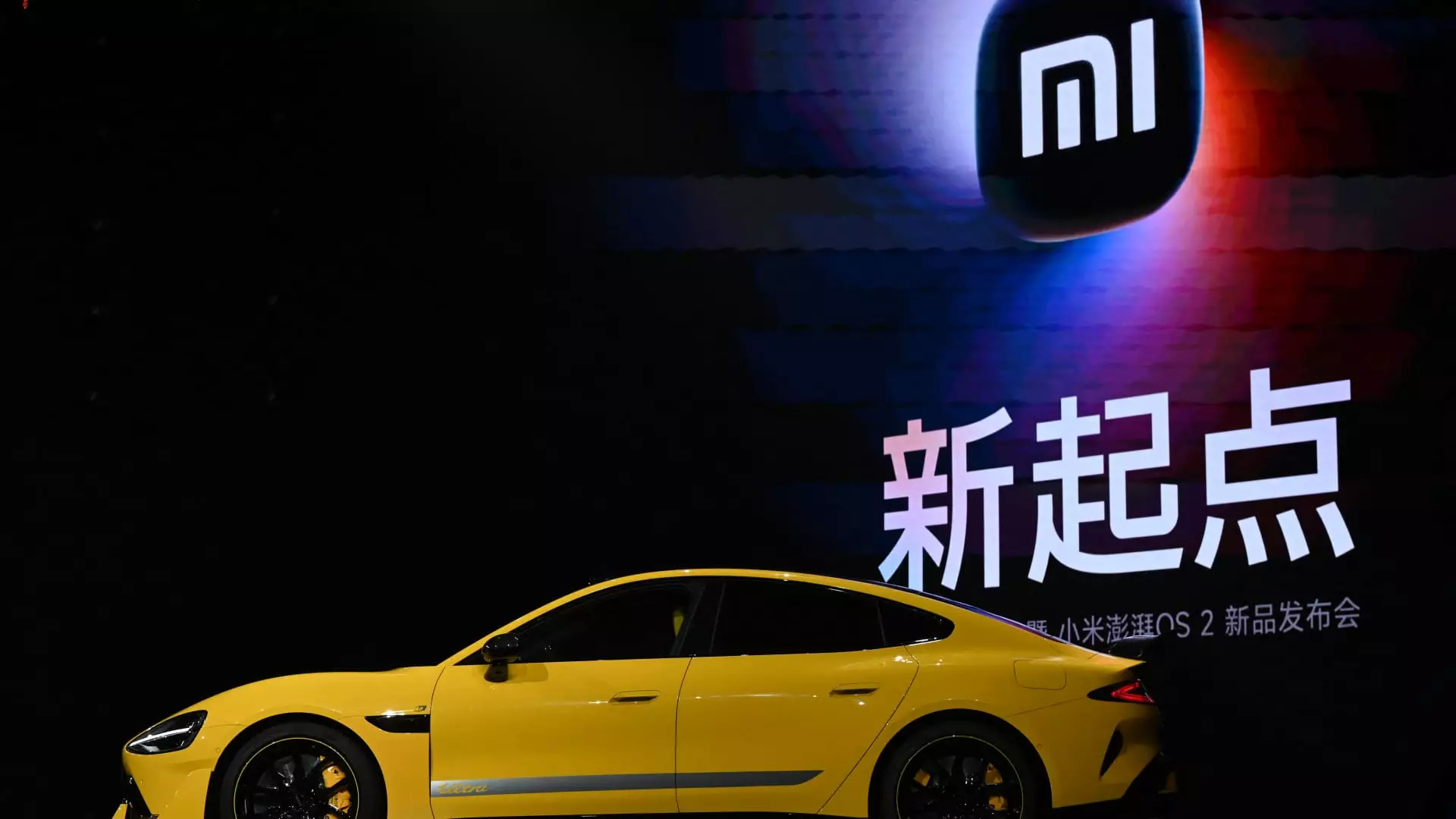Xiaomi, a company predominantly recognized for its smartphones and tech gadgets, is making significant strides in the electric vehicle (EV) industry. In a recent press release, the Beijing-based firm announced that it had successfully delivered over 20,000 units of its SU7 electric vehicle in October alone. This impressive figure is part of Xiaomi’s strategy to enhance its production capabilities and establish a foothold in one of the most competitive markets globally—the electric vehicle sector. The company’s target is to reach 100,000 deliveries of the SU7 by the end of November, highlighting its ambitious growth trajectory in the automotive space.
The company’s foray into car manufacturing began in 2021, marking a notable expansion of its business model. To support this initiative, Xiaomi constructed a dedicated manufacturing facility the same year. The SU7 was introduced to the market at a competitive price point, approximately $4,000 lower than Tesla’s Model 3, making it an attractive option for consumers looking for affordability without sacrificing quality.
Xiaomi’s current sales statistics reveal that the company has already delivered over 75,000 units of the SU7 since its launch. In stark contrast, its rivals in the electric vehicle sector, such as Xpeng and Nio, took significantly longer to achieve 100,000 deliveries, highlighting Xiaomi’s rapid market penetration. For instance, Xpeng required nearly six years to reach this milestone, while Tesla took twelve years. In September, Xpeng set a new monthly record with over 20,000 vehicle deliveries, mirroring Xiaomi’s recent success. This indicates a shift in dynamics within China’s EV market, where newer entrants are beginning to disrupt the traditional strongholds.
Sales data indicates that while some companies like Nio have struggled to maintain robust monthly delivery figures, others such as Zeekr have emerged as formidable competitors. Founded by Geely, Zeekr claimed to have produced more than 100,000 vehicles in a mere 1.5 years, showcasing a rapidly evolving market landscape. Analysts estimate that Xiaomi’s acceleration into the EV market may position it as a significant threat to established players, according to insights shared by Brian Tycangco of Stansberry Research.
In addition to its standard model, Xiaomi recently announced preorders for a high-end variant known as the SU7 Ultra, expected to retail at approximately 814,900 yuan (around $114,000). This release is indicative of Xiaomi’s strategy to cater to more affluent consumers while also maintaining aggressive pricing for its entry-level models. Notably, the company reported that it garnered over 3,600 preorders for the SU7 Ultra within just ten minutes of launching the campaign, demonstrating a strong consumer interest.
Xiaomi’s ambitions do not stop with the SU7 Ultra. The brand aims to leverage its achievements, including setting a record for the fastest four-door sedan at the famed Nurburgring race track, to bolster its market appeal. This focus on performance could potentially encourage current and prospective customers to consider Xiaomi’s premium offerings alongside established competitors.
Market analysis reflects Xiaomi’s current standing among other electric vehicle brands in China. While Tesla’s Model Y led the sales chart with over 48,000 vehicles sold in September, Xiaomi’s SU7 was reported to be the 17th best–selling EV, with around 13,559 units sold. These figures indicate that although Xiaomi is gaining ground, there is still significant competition from established brands like Tesla and BYD, which dominate the market with lower-priced models.
Furthermore, Xiaomi’s plans to expand beyond Chinese shores are cautious. Current estimates suggest that it may take a minimum of two to three years for the company to initiate overseas launches, which emphasizes the need for strategic planning as the global EV market continues to evolve.
Xiaomi is on a promising path in the electric vehicle sector, marked by impressive delivery figures and ambitious expansion plans. As the company navigates a fiercely competitive landscape, its innovative approaches and strategic pricing may enable it to establish a strong presence, with the potential to disrupt long-standing industry leaders. The forthcoming years will be crucial for Xiaomi as it seeks to balance growth with sustainable practices in the burgeoning EV market.

